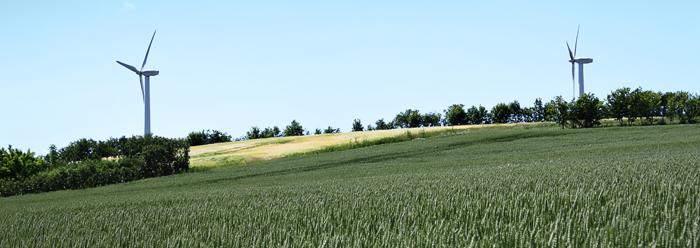
Local conditions
This classification as a 1. generation biofuel plant is due to the fact that feed wheat (also known as industrial wheat) is classified as food.
Danish produced feed wheat contains a high degree of starch, and thereby a low amount of protein, which makes it unsuitable for baking, why Danish wheat is not used for human consumption.
At Hveiti we believe that it makes sense to use a locally produced commodity for a local production of food, feed and energy. In this way you get fuel, food and a valuable protein product to be used for animal feed, from a commodity which traditionally is only used for feed or industrial purposes.
The products produced at Hveiti help mitigate the CO2 emissions in the following ways:
-
Bioethanol: Hveiti’s bioethanol has a 70 % CO2 reduction capacity compared to gasoline.
-
Protein: Hveiti’s protein product can replace soybean protein imported from e.g. South America. Besides a lower CO2 emission due to a reduced import, the product also helps easing the pressure on the South American rainforests.
1. vs. 2. generation biofuel
1. and 2. generation biofuel refer to the commodity used for the production of bioethanol. Hveiti will not only produce bioethanol, but also food and feed, which means that you optimise the use of the raw material compared with the traditional use. The classical 1. / 2. generation classification does not account for this, why Hveiti falls out of category, and is a biorefinery.
Conventional vs. advanced biofuel
Instead of the 1. / 2. generation classification, focus is increasingly on a classification between conventional and advanced biofuels. Conventional biofuels are classified as biofuels where there are no focus on technology and resource optimisation, and where the fuel has a low CO2 profile. Advanced biofuels are classified as biofuel where focus is on an optimisation of the resources used, and on a high CO2 reduction capacity.
Follow the developments within biorefining. hveiti regularly informs about our efforts to improve the environment.




